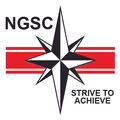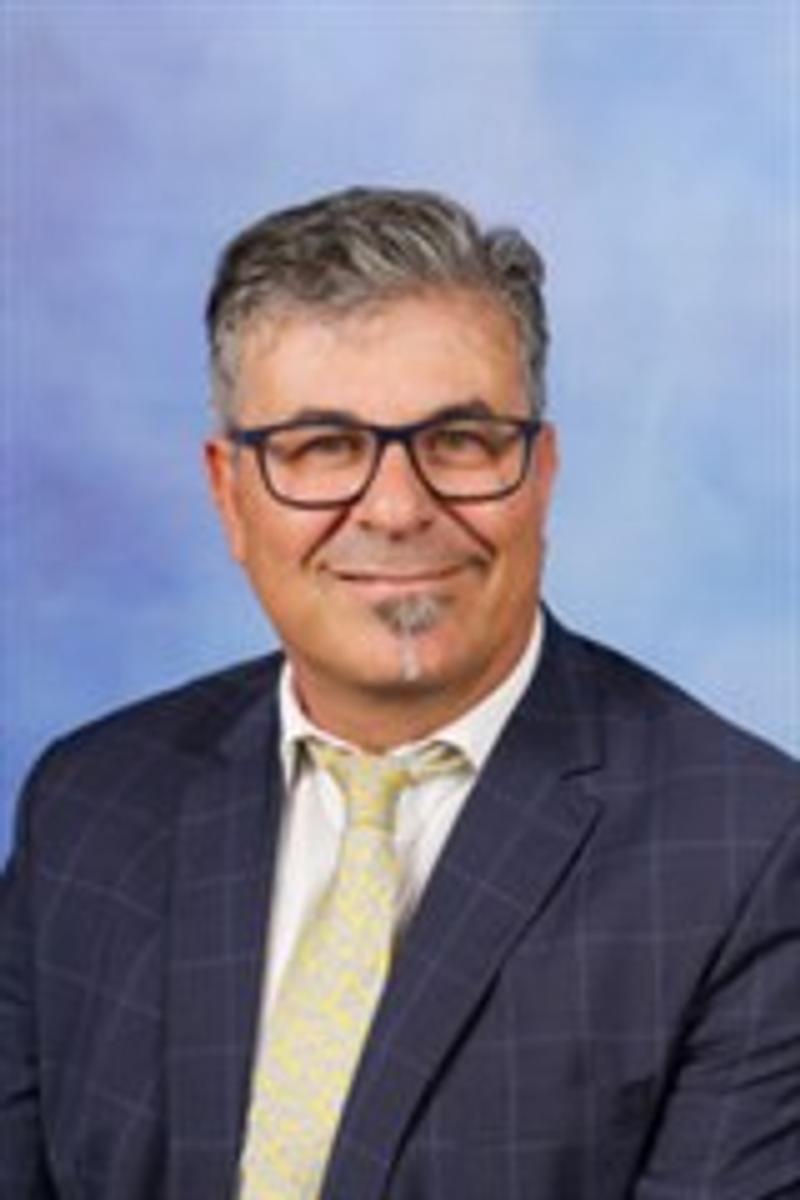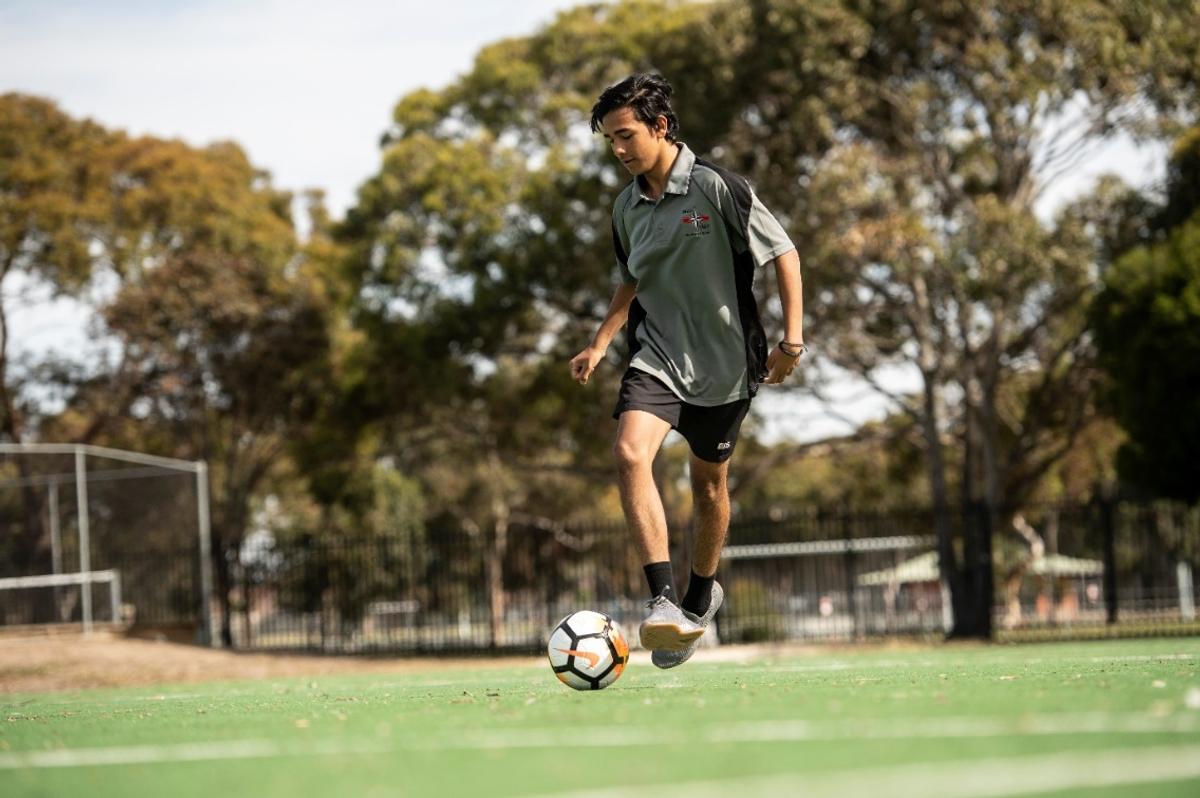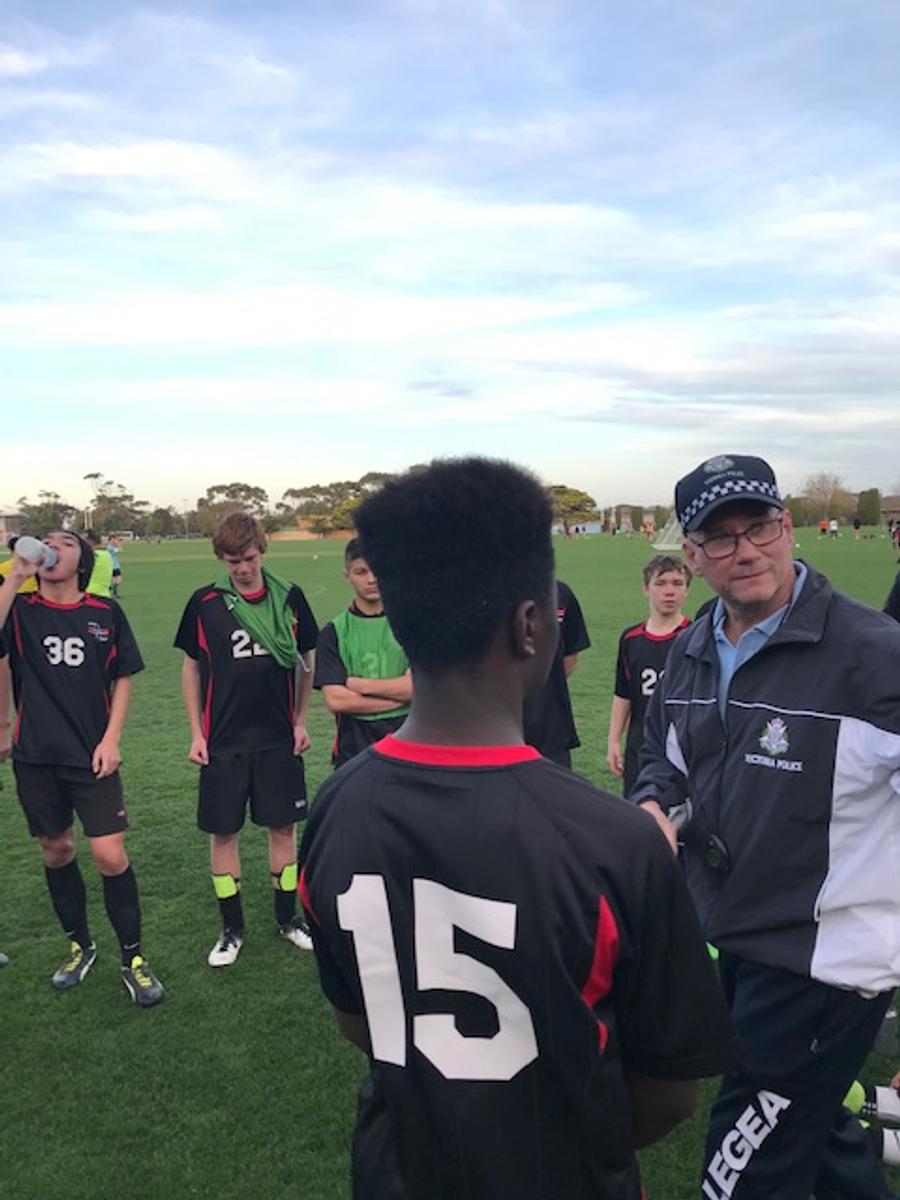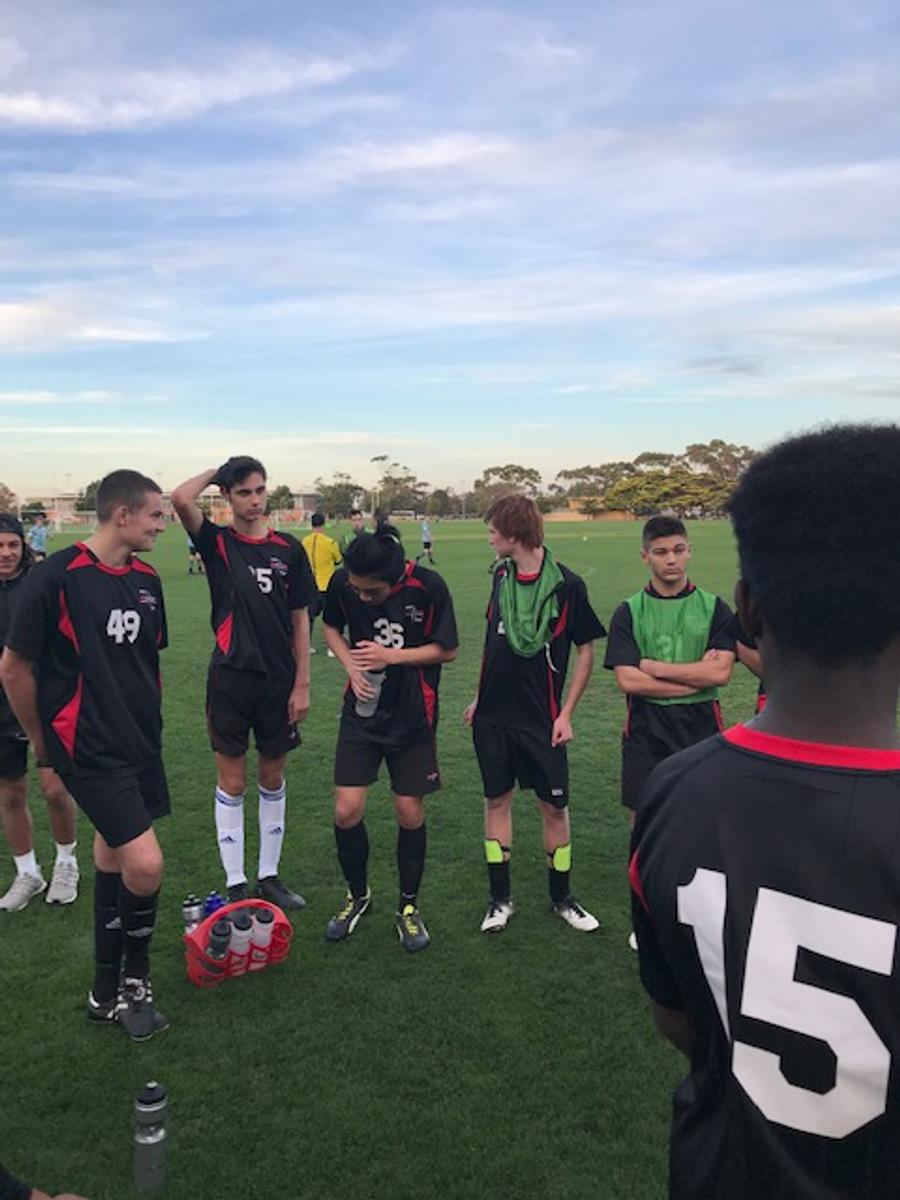PRINCIPAL'S REPORT
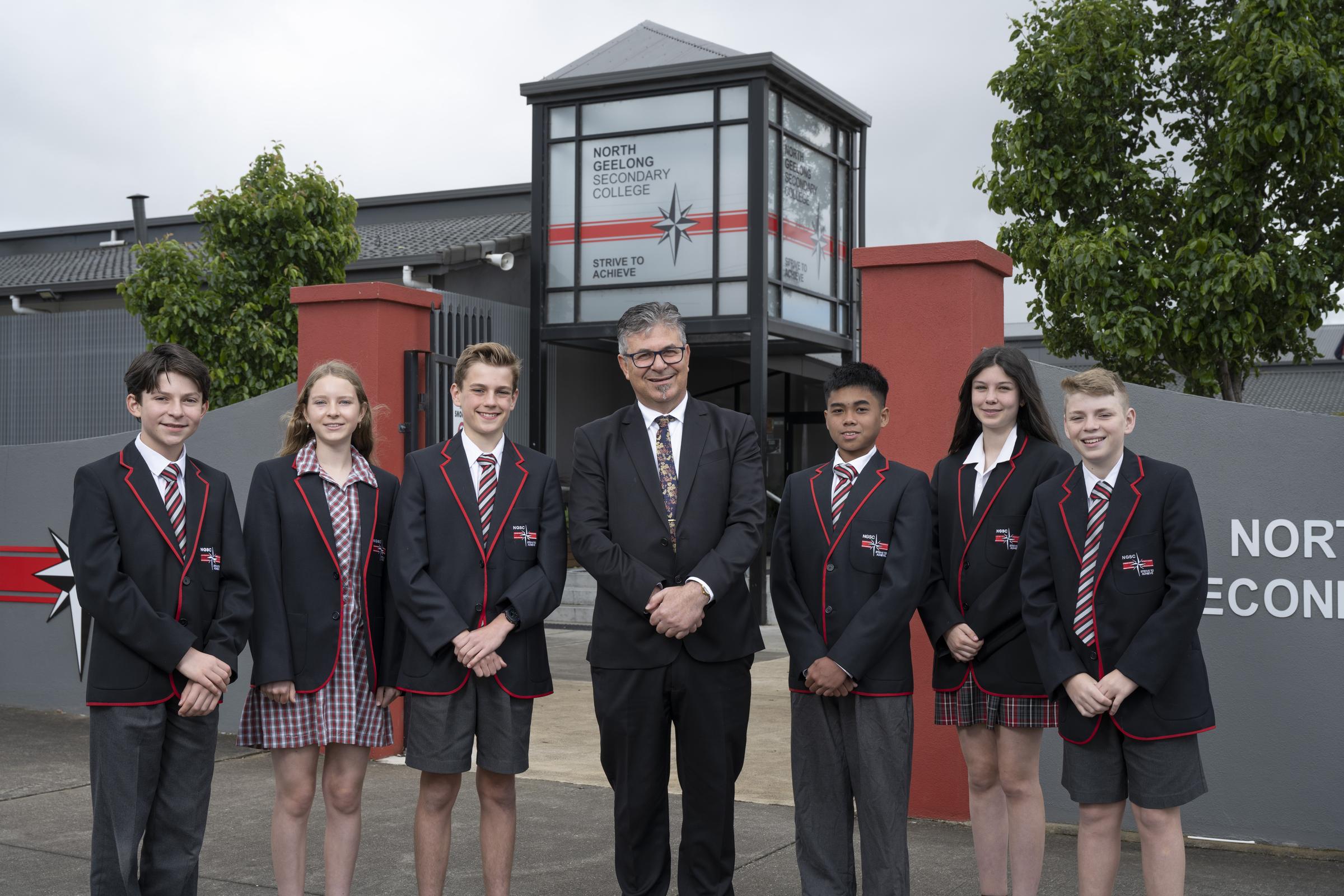
Nicolas Adamou
Principal
2023 Key Dates
| 19 June | Semester 2 Commences |
| 23 June | Last day of Term 2 - Students dismissed at 1:30 pm |
| 10 July | Term 3 Commences |
| 18 July | School Council Meeting |
End of Term 2
Today is the end of Term 2 of this academic year. I take this opportunity to celebrate with you and your families the achievements of our students and staff. None of this can occur without the hard work and effort of the staff (teaching and non-teaching) who work diligently, plan and organise the learning & teaching that takes place daily within our vibrant college community. As I scan through the past newsletters, I cannot help being extremely proud of the personal qualities and achievements of our students this semester.
Our students have shown remarkable academic prowess across various disciplines. They have achieved great curriculum results, added value to their learning. Our SEAL program has witnessed exceptional results, with an increase in the number of students earning top scores. They had many opportunities to demonstrate our school values Respect, Excellence, Achievement & Diversity, within the school and the wider community.
Our school strongly encourages our students to participate in extracurricular activities and they have excelled in various arenas such as debating, public speaking, camps, fundraising activities, sporting events to name a few. Our Excellence in Sports (EIS) and other sports teams have displayed exceptional sportsmanship and achieved victories in numerous competitions. The performing arts groups have showcased their talents through outstanding musical performances, leaving audiences captivated.
Maintaining a positive and inclusive school environment is essential to our success. We continue to prioritise the well-being of our students and provide resources for mental health support. Our commitment to fostering a safe and respectful atmosphere remains unwavering, and we encourage everyone to actively participate in creating a supportive community.
School and self-pride are central to everything we do here at NGSC. We bring together a collaborative community of practice, committed to providing students with the tools they need not only to deal with life’s difficulties, but also to teach them the skills required to lead a flourishing life. Our staff and students are proud to be part of the school community and they are also very proud to representing our community and its values to the wider community.
At the 2023 Education State School Leadership Conference, Minister Hutchins spoke about excellence, and how strong instructional leadership and wellbeing support drive excellence for all students to reach their potential.
To build a better school is hard work, and requires great leadership, with the foresight to turn ideas into actions. This enables a culture of excellence to flourish in the school, in every classroom and across the system as part of the Education State goal of excellence. All our students deserve to reach their best, and this includes ensuring our high ability and gifted students are stretched, engaged, and challenged. As Principal of this outstanding school community, I can assure you that NGSC is a school of excellence and everything we do is about the improvement of our young people ensuring successful future pathways.
In conclusion, I am immensely proud of our students’ achievements and the dedication of our staff. Together, we have demonstrated excellence in academics, extracurricular activities, community involvement, and college and career preparedness. I look forward to the upcoming semester and witnessing the continued growth and success of our high school community.
Wishing you all a restful break with your families and friends and if taking time away for the term vacation, that you keep safe and enjoy your time off.
Term Three begins on Monday, July 10.
Congratulations to Johanna Ivey who has been successful in this year’s State Schools Spectacular!
The Department of Education’s Performing Arts Unit auditioned students from across the state for this year’s Victorian State Schools Spectacular.
Congratulations to Johanna who has secured a role in this year’s Spectacular core performing company. Johanna is a commendable ambassador for our school, and we wish her all the best in the upcoming performances.
The Spectacular will be performed twice on Saturday 9 September at John Cain Arena, followed by a television broadcast in December. Rehearsals have commenced for this year’s production which will showcase more than 3,000 Victorian government school students in a performance of music, song, dance, skating, circus, puppetry and backstage areas such as audio, lighting, vision and stage management.
The NGSC school community is looking forward to seeing Johanna performing in this year’s state schools spectacular.
Some ways parents/carers can encourage and support your young person’s mental health and wellbeing:
1. Encourage them to stay connected
Social relationships are important to your young person’s general wellbeing. It is okay if they take time out for themselves at times but encourage them to keep in contact with friends.
Friends can provide both play and support, and spending time with friends is also important for keeping and building on existing friendships. During restrictions, young people can remain connected via phone call, email, text message Facebook message, Zoom meetings or HouseParty app.
2. Encourage them to stay involved
Encourage involvement with volunteer work, hobbies, clubs or committees, or sports – these can help young people feel connected to their wider community. Participate with them when you can. Involve them in decisions and give them responsibility at home (eg making decisions about dinner and helping to prepare dinner). Help them to identify and set realistic goals. Setting and achieving realistic goals can be incredibly motivating and can help build self-confidence.
3. Encourage physical activity
Physical activity is important for everyone’s health and wellbeing. If your young person is feeling down or finding things are difficult, physical activity may be the last thing they feel like doing. But even small activities, like walking around the block, can help relieve stress and frustration, provide a good distraction from worrying thoughts, improve concentration and improve mood. If your young person is struggling to get active, find a physical activity that you both enjoy and can do together and plan to do it regularly.
4. Encourage a regular routine
Getting a good night’s sleep helps young people to feel energised, focused and motivated. Adolescence is a time when a number of changes to the “body clock” impact on sleeping patterns and young people are more likely to have problems with sleep. Developing a sleeping routine can help. Encourage your young person to headspace wake up around the same time each day, get out of bed when they wake up, and go to bed around the same time each night. Avoiding caffeine after lunchtime, having a quiet, dark and uncluttered bedroom and shutting down electronic devices before bed can also help them to get a good night’s sleep.
5. Encourage healthy eating habits
Eating well doesn’t only reduce the risk of physical health problems, like heart disease and diabetes, but it can also help with sleeping patterns, energy levels, mood, and general health and wellbeing. A good balanced diet with less junk food/lots of sugars and more vegies, fruit, whole grains and plenty of water will ensure your young person has all of the vitamins and minerals to help their body and brain function well.
6. Encourage play
Devoting time to just having fun can help to recharge your young person’s battery, revitalise their social networks and reduce stress and anxiety.
HOW HARMFUL IS SOCIAL MEDIA TO MENTAL HEALTH?
The impact of social media on mental health is a complex and ongoing topic of research. While social media platforms have many benefits, there are concerns about potential negative effects on mental well-being. At NGSC we encourage the appropriate use of social media and through Student Voice.
Here are some ways in which social media can potentially impact mental health:
- Social comparison: social media often presents a distorted version of reality, where people tend to share the highlights of their lives. This can lead to social comparison, where individuals compare themselves unfavourably to others, leading to feelings of inadequacy, low self-esteem, and depression.
- Cyberbullying: Social media platforms can provide a space for cyberbullying, harassment, and negative interactions. Experiencing bullying or witnessing it can have detrimental effects on mental health, causing stress, anxiety, and even leading to depression.
- Fear of missing out (FOMO): social media can create a fear of missing out on experiences and events others are participating in. Constant exposure to others' exciting activities or achievements can induce feelings of loneliness, anxiety, and a sense of being left out.
- Online harassment and trolling: Users may face online harassment or trolling, which can cause significant psychological distress. Negative comments, personal attacks, and online conflicts can impact self-esteem, mood, and overall mental well-being.
- Unrealistic body image ideals: social media often perpetuates idealised and unrealistic body image standards. Constant exposure to such images can contribute to body dissatisfaction, eating disorders, and poor self-image, particularly among vulnerable individuals.
- Sleep disturbances: Excessive use of social media, especially before bedtime, can disrupt sleep patterns. Poor sleep quality and quantity can have negative consequences for mental health, including increased stress, mood disorders, and decreased cognitive function.
It is important to note that the impact of social media on mental health can vary for different individuals. Some people may be more susceptible to its negative effects, while others may navigate social media without significant harm. It's crucial to use social media mindfully, maintain a healthy balance, and seek support if you experience any negative effects on your mental well-being.
Child Safe Standards: Creating a safe environment.
North Geelong SC is a child safe school/organisation that aims to comply with Ministerial Order No. 870 - Child Safe Standards, which came into effect 1 August 2016.
The school is committed to the safety and wellbeing of all children and young people and this is the primary focus of our care and decision-making. We have a zero tolerance for child abuse.
NGSC is committed to providing a child safe environment where children and young people are safe and feel safe, and their voices are heard about decisions that affect their lives. Particular attention is paid to the cultural safety of Aboriginal children and children from culturally and/or linguistically diverse backgrounds, as well as the safety of children with a disability.
All NGSC staff members have a responsibility to understand the important and specific role he/she plays individually and collectively to ensure that the wellbeing and safety of all children and young people is at the forefront of all they do and every decision they make.
In addition, the school has a Wellbeing Centre/Hub with a number of full-time staff members working with the students ensuring they are building resilience skills and having their wellbeing needs addressed. Together with the Doctors in Schools program the school wellbeing team works with a number of external agencies such as The Geelong Project and other organisations utilising their expertise to improving our students’ wellbeing, ensuring they feel safe and able to be productive in a caring learning and teaching environment.
Child Safety, Code of Conduct
NGSC is committed to the safety and wellbeing of children and young people. Our school community recognises the importance of, and a responsibility for, ensuring our school is a safe, supportive and enriching environment which respects and fosters the dignity and self-esteem of children and young people, and enables them to thrive in their learning and development.
This Code of Conduct aims to protect children and reduce any opportunities for child abuse or harm to occur. It also assists in understanding how to avoid or better manage risky behaviours and situations. It is intended to complement child protection legislation, Department policy, school policies and procedures and professional standards, codes or ethics as these apply to staff and other personnel.
The NGSC Principal and the Leadership Team fully support the implementation and monitoring of the Code of Conduct, and plan, implement and monitor arrangements to provide inclusive, safe and orderly schools and other learning environments. The NGSC Principal and the Leadership Team also provide information and support to enable the Code of Conduct to operate effectively.
All staff, contractors, volunteers and any other members of the school community involved in child-related work are required to comply with the Code of Conduct by observing expectations for appropriate behaviour below. The Code of Conduct applies in all school situations, including school camps and in the use of digital technology and social media.
Acceptable behaviours
As staff, volunteers, contractors, and any other members of the school community involved in child-related work individually, we are responsible for supporting and promoting the safety of children by:
- upholding the school’s statement of commitment to child safety at all times
- treating students and families in the school community with respect both within the school environment and outside the school environment as part of normal social and community activities.
- listening and responding to the views and concerns of students, particularly if they are telling you that they or another child has been abused or that they are worried about their safety/the safety of another child
- promoting the cultural safety, participation, and empowerment of Aboriginal and Torres Strait Islander students
- promoting the cultural safety, participation, and empowerment of students with culturally and/or linguistically diverse backgrounds
- promoting the safety, participation, and empowerment of students with a disability
- reporting any allegations of child abuse or other child safety concerns to the school’s leadership team
- understanding and complying with all reporting or disclosure obligations (including mandatory reporting) as they relate to protecting children from harm or abuse.
- if child abuse is suspected, ensuring as quickly as possible that the student(s) are safe and protected from harm.
Unacceptable behaviours
As staff, volunteers, contractors, and any other member of the school community involved in child-related work we must not:
- ignore or disregard any concerns, suspicions or disclosures of child abuse
- develop a relationship with any student that could be seen as favouritism or amount to ‘grooming’ behaviour (for example, offering gifts)
- exhibit behaviours or engage in activities with students which may be interpreted as abusive and not justified by the educational, therapeutic, or service delivery context
- ignore behaviours by other adults towards students when they appear to be overly familiar or inappropriate
- discuss content of an intimate nature or use sexual innuendo with students, except where it occurs relevantly in the context of parental guidance, delivering the education curriculum or a therapeutic setting
- treat a child unfavourably because of their disability, age, gender, race, culture, vulnerability, sexuality or ethnicity.
- communicate directly with a student through personal or private contact channels (including by social media, email, instant messaging, texting etc) except where that communication is reasonable in all the circumstances, related to school work or extra-curricular activities or where there is a safety concern or other urgent matter
- photograph or video a child in a school environment except in accordance with school policy or where required for duty of care purposes.
- in the school environment or at other school events where students are present, consume alcohol contrary to school policy or take illicit drugs under
Show me how it’s done!
Research is showing that we learn very effectively when we have people show us how to perform a task and involve us directly in it. Anyone trying to connect the iPhone or iPad to the flat touch/interactive screen TV set will also agree that it is often much more effective to have someone show you how to do that, than to decipher the manual yourself. Parents/Guardians and in particular mothers, model this mode of teaching by showing their children how to do a myriad of things as they are growing up.
At NGSC, it is important to provide students with a range of “ways of learning” and to have outside experts, teachers and students act as mentors and role-models to help students see “how it’s done” – this is a great and powerful tool.
Opportunities for younger students to see older role models such as Year 11 and 12 students are a real feature of our school. Also, the Excellence in Sports program (Soccer and Football), partnership with the Geelong Football Club and Victoria Police enhances, self-discipline, great role modelling and confidence to our students, by high level football and soccer players, AFL umpires and Victoria Police. This program places strong emphasis on “Show me How it’s Done”. These Sports people and the Police Officers work with our Excellence in Sports program students who learn more effectively by others showing them how. Our educational setting, our school culture and our mindset allow this to occur naturally, and it is such an asset in developing confident, capable young adults, young adults who are ready to be useful, employable global citizens.
Currently, our Student Leaders (School Captains & SRC) are enjoying the role of modelling to the rest of the student body through many extracurricular activities, such as performing arts, song and dance, organising sporting events, coaching junior sporting teams, taking the lead in school human and environmental issues and a number of other academic activities.
